Nissan Leaf vs Vauxhall Mokka - Differences and prices compared
Compare performance (217 HP vs 281 HP), boot space and price (30800 £ vs 22900 £) at a glance. Find out which car is the better choice for you – Nissan Leaf or Vauxhall Mokka?
Costs and Efficiency:
Looking at overall running costs, both models reveal some interesting differences in everyday economy.
Vauxhall Mokka has a clearly perceptible advantage in terms of price – it starts at 22900 £, while the Nissan Leaf costs 30800 £. That’s a price difference of around 7851 £.
In terms of energy consumption, the advantage goes to the Vauxhall Mokka: with 15.40 kWh per 100 km, it’s slight more efficient than the Nissan Leaf with 16.70 kWh. That’s a difference of about 1.30 kWh.
As for range, the Vauxhall Mokka performs barely noticeable better – achieving up to 403 km, about 18 km more than the Nissan Leaf.
Engine and Performance:
Power, torque and acceleration are the classic benchmarks for car enthusiasts – and here, some clear differences start to show.
When it comes to engine power, the Vauxhall Mokka has a evident edge – offering 281 HP compared to 217 HP. That’s roughly 64 HP more horsepower.
In acceleration from 0 to 100 km/h, the Vauxhall Mokka is a bit quicker – completing the sprint in 5.90 s, while the Nissan Leaf takes 6.90 s. That’s about 1 s faster.
In terms of top speed, the Vauxhall Mokka performs clearly perceptible better – reaching 209 km/h, while the Nissan Leaf tops out at 157 km/h. The difference is around 52 km/h.
There’s also a difference in torque: Vauxhall Mokka pulls hardly perceptible stronger with 345 Nm compared to 340 Nm. That’s about 5 Nm difference.
Space and Everyday Use:
Whether family car or daily driver – which one offers more room, flexibility and comfort?
Both vehicles offer seating for 5 people.
In curb weight, Vauxhall Mokka is evident lighter – 1294 kg compared to 1580 kg. The difference is around 286 kg.
In terms of boot space, the Nissan Leaf offers somewhat more room – 394 L compared to 350 L. That’s a difference of about 44 L.
In maximum load capacity, the Vauxhall Mokka performs distinct better – up to 1105 L, which is about 315 L more than the Nissan Leaf.
When it comes to payload, Nissan Leaf slight takes the win – 415 kg compared to 400 kg. That’s a difference of about 15 kg.
Who wins the race?
The Vauxhall Mokka proves to be is largely superior and therefore becomes our DriveDuel Champion!
Vauxhall Mokka is the better all-rounder in this comparison.
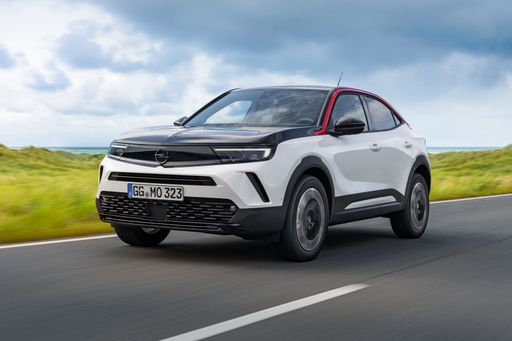
Vauxhall Mokka
Costs and Consumption
View detailed analysis
Engine and Performance
View detailed analysis
Dimensions and Body
View detailed analysis
Nissan Leaf
The Nissan Leaf is a practical, easygoing electric hatch that turns daily commutes into a quiet, effortless affair while offering more cabin space than it lets on. It’s a sensible, wallet-friendly step into electrification for buyers who value comfort and simplicity over sporty drama, though those chasing long-distance thrills might look elsewhere.
details



Vauxhall Mokka
The Opel Mokka cuts a smart, modern silhouette that feels right at home in the city while still turning heads on the open road. It's a practical, easy-to-live-with crossover that blends comfy driving manners with enough flair and tech to keep daily commutes interesting — and it won’t make you regret trading up.
details
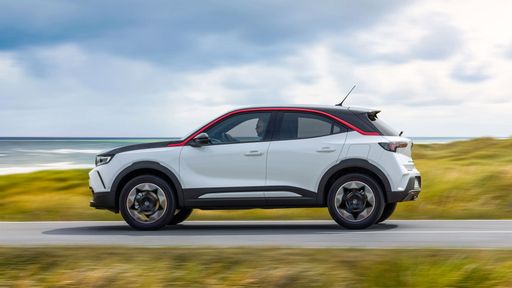
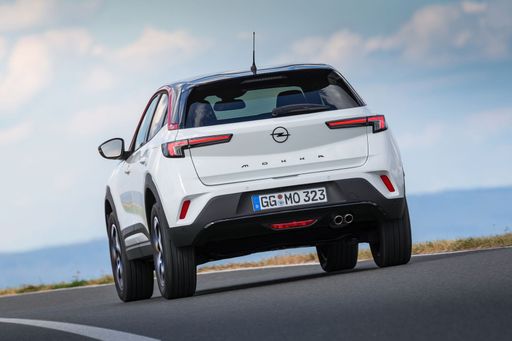
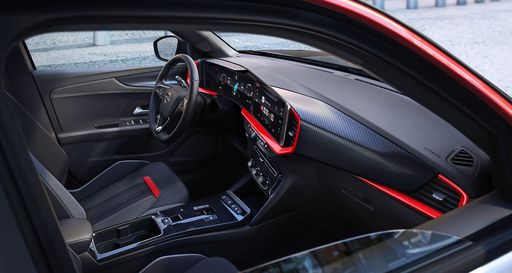
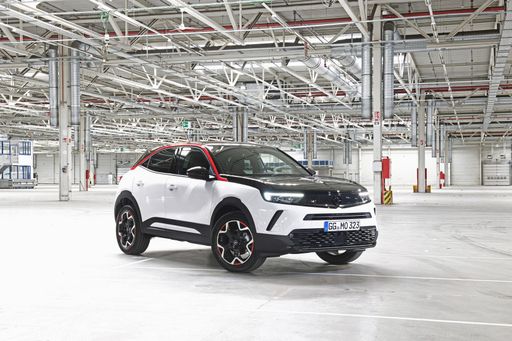

|

|
|
|
|
Costs and Consumption |
|
|---|---|
|
Price
30800 - 37200 £
|
Price
22900 - 40500 £
|
|
Consumption L/100km
-
|
Consumption L/100km
4.9 - 5.7 L
|
|
Consumption kWh/100km
16.7 - 17.8 kWh
|
Consumption kWh/100km
15.4 - 18.5 kWh
|
|
Electric Range
270 - 385 km
|
Electric Range
336 - 403 km
|
|
Battery Capacity
39 - 59 kWh
|
Battery Capacity
51 kWh
|
|
co2
0 g/km
|
co2
0 - 129 g/km
|
|
Fuel tank capacity
-
|
Fuel tank capacity
44 L
|
Dimensions and Body |
|
|---|---|
|
Body Type
Hatchback
|
Body Type
SUV
|
|
Seats
5
|
Seats
5
|
|
Doors
5
|
Doors
5
|
|
Curb weight
1580 - 1756 kg
|
Curb weight
1294 - 1672 kg
|
|
Trunk capacity
385 - 394 L
|
Trunk capacity
310 - 350 L
|
|
Length
4490 mm
|
Length
4150 mm
|
|
Width
1788 mm
|
Width
1787 mm
|
|
Height
1540 - 1545 mm
|
Height
1506 - 1535 mm
|
|
Max trunk capacity
790 L
|
Max trunk capacity
1060 - 1105 L
|
|
Payload
384 - 415 kg
|
Payload
388 - 400 kg
|
Engine and Performance |
|
|---|---|
|
Engine Type
Electric
|
Engine Type
Electric, Petrol MHEV, Petrol
|
|
Transmission
Automatic
|
Transmission
Automatic, Manuel
|
|
Transmission Detail
Reduction Gearbox
|
Transmission Detail
Reduction Gearbox, Dual-Clutch Automatic, Manual Gearbox
|
|
Drive Type
Front-Wheel Drive
|
Drive Type
Front-Wheel Drive
|
|
Power HP
150 - 217 HP
|
Power HP
130 - 281 HP
|
|
Acceleration 0-100km/h
6.9 - 7.9 s
|
Acceleration 0-100km/h
5.9 - 9 s
|
|
Max Speed
144 - 157 km/h
|
Max Speed
150 - 209 km/h
|
|
Torque
320 - 340 Nm
|
Torque
230 - 345 Nm
|
|
Number of Cylinders
-
|
Number of Cylinders
3
|
|
Power kW
110 - 160 kW
|
Power kW
100 - 207 kW
|
|
Engine capacity
-
|
Engine capacity
1199 cm3
|
General |
|
|---|---|
|
Model Year
2019
|
Model Year
2024 - 2025
|
|
CO2 Efficiency Class
A
|
CO2 Efficiency Class
A, C, D
|
|
Brand
Nissan
|
Brand
Vauxhall
|
What drivetrain options does the Nissan Leaf have?
Available configurations include Front-Wheel Drive.
The prices and data displayed are estimates based on German list prices and may vary by country. This information is not legally binding.
